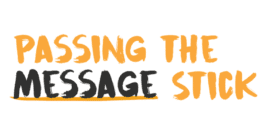Helping the small guys have a big impact

29 March 2023 at 4:40 pm
The Small Non-Profits Alliance provides information and connection to smaller players in Australia’s charity sector.
According to the ACNC, 65.9 per cent of the Australian charity sector has less than $1 million in annual revenue, therefore making up the majority of the sector. That’s 30,145 charities.
These charities account for $4.7 billion of the total $176 billion in revenue in the sector, and more than 72,000 staff members and over one million volunteers.
Yet, they often get forgotten, argues Bianca Crocker who decided to take matters into her own hands.
After two decades in the sector, Crocker founded the Small Non-Profits Alliance four years ago.
The Alliance is a hub for resources and support for the more than 60 per cent of Australian charities that have less than $1m in annual revenue.
“I felt like there was an opportunity to really engage and connect with this group of small charities in Australia because they often get quite forgotten, I feel, and they’re actually a large cohort of the group,” she told Pro Bono News.
“The idea came about by thinking if we started an online membership program, they could tap in and tap out of various things as they needed and it would be a lower price point for them to get some of the support that is actually targeted and tailored at those types of organisations.”
The Small Non-Profits Alliance offers a membership system that provides access to various resources for smaller charities, including strategic, operation and tactical support. The Alliance also offers some coaching, training and consulting.
The Small Non-Profits Alliance currently has just over 400 members from all over the country, drawn from a diverse range of focus areas or issues including health, children, animal welfare and local homelessness groups. The membership base is growing steadily.
Crocker said it’s been interesting to watch the conversations developing between the members, all of whom share the same challenges and benefit from sharing knowledge between them.
Through her own research, she knows the value of those sorts of connections to reduce the isolation that some small charities’ staff can feel.
How are small charities doing?
Crocker noted that these charities rely heavily on donations and bequests, and generally receive less funding from the government too.
Crocker believes there are lots of strengths inherent in small charities, including greater agility to respond to social issues, and fewer layers of governance. They are also often deeply embedded into the communities they serve.
But the challenges they face are different to those faced by their larger counterparts, including smaller budgets and fewer resources, and they may be overlooked in major grant applications, with funding bodies not recognising the social impact that smaller charities can have.
“[Small not for profits] don’t have a huge market share. But for the people that they’re working with and the lives that they’re changing [they’re] actually making a really huge difference,” Crocker said.
Levelling the playing field
But she is fascinated by the people behind these smaller charities, whose work has driven Crocker in her own.
“I’m so inspired by the way they do what they do… they’re amazing at what they do and they’re often really passionate and knowledgeable and often have lived experience or personal experience with the cause or issue at the heart of their organisation,” Crocker said.
“But they often don’t have the business skills or the fundraising skills or the governance skills and those sorts of things that it takes to run a successful charity and get your charity to that next level. And I don’t feel that just because they’re a small organisation, that they shouldn’t have access to those skills.”
Crocker plans to keep the membership costs as low as possible to ensure the Alliance is affordable for charities to join. She believes the growth in membership proves the Alliance is sorely needed.
“The continual comments I hear from our members… [are] that they can’t find this sort of support somewhere else and they can dial up the support as much as they need,” she said.







